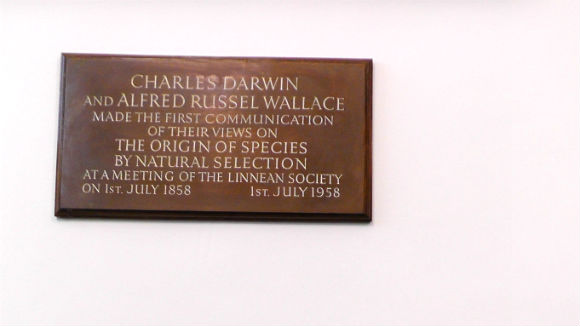The evolution of cancer cells can cause tumours to become resistant to treatment – which is why we need to get smart to fight them effectively.

“Nothing in biology makes sense except in the light of evolution”. This famous quote from Theodosius Dobzhansky concluded a lecture I attended recently on the evolutionary origins of diversity in cancer. Professor Mel Greaves, Director of the ICR’s Centre for Evolution and Cancer, delivered the lecture in the history-soaked halls of the Linnean Society - the same halls that saw Darwin and Wallace present their theory of evolution by natural selection in 1858.
We have written a lot about cancer diversity and evolution on this blog, explaining how random mutations in cancer cells can cause tumours to diversify within a patient, and how this in turn can drive the development of drug resistance. We now know that the same laws of evolution by natural selection that drove the origin of species also drive the diversity of cancer cells.
It is evolution that allows cancer to become resistant and progress after initial therapy, professor Greaves explained. Cancer cells within a patient under treatment can be seen as a population in a hostile environment. As they mutate they will attempt to adapt in different ways – by changing their behaviour or metabolism, migrate or become drug resistant. Some mutations will prove more successful than others. As I listened to Professor Greaves, speciation, founder effect, genetic drift and other evolutionary concepts I used to read about in biology books acquired new meanings when applied to cancer.
These processes are unique to each patient and can happen unexpectedly fast. It’s a complex affair, and it seems that therapies will have a hard time adapting to a rapidly changing disease. But Professor Greaves’s talk ended on an optimistic note. If cancer, like any other organism, has to submit to the rules of evolution, we can use the same rules for our advantage. In the Professor’s words, we need to get smart, and develop a more personalised approach to influence the evolution of cancer.
For example, we can identify key mutations in a specific cancer, and target those mutations in the descendant sub-clones. It is also possible to influence the ecosystem of a cancer population, creating difficult conditions for it to adapt. We could introduce benign cells into the environment to act like a competing species, making cancer cells fight for the available resources. Combination drug treatment, an approach has proved effective in diseases like HIV, could also be adapted to cancer cells. Understanding the inner workings of the evolution of a tumour could be the key to drive it to extinction.
comments powered by